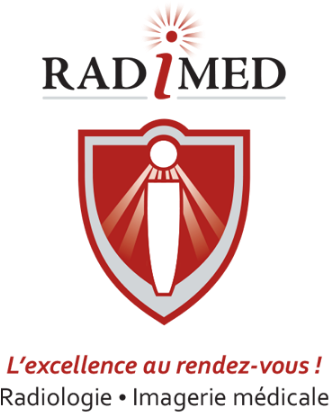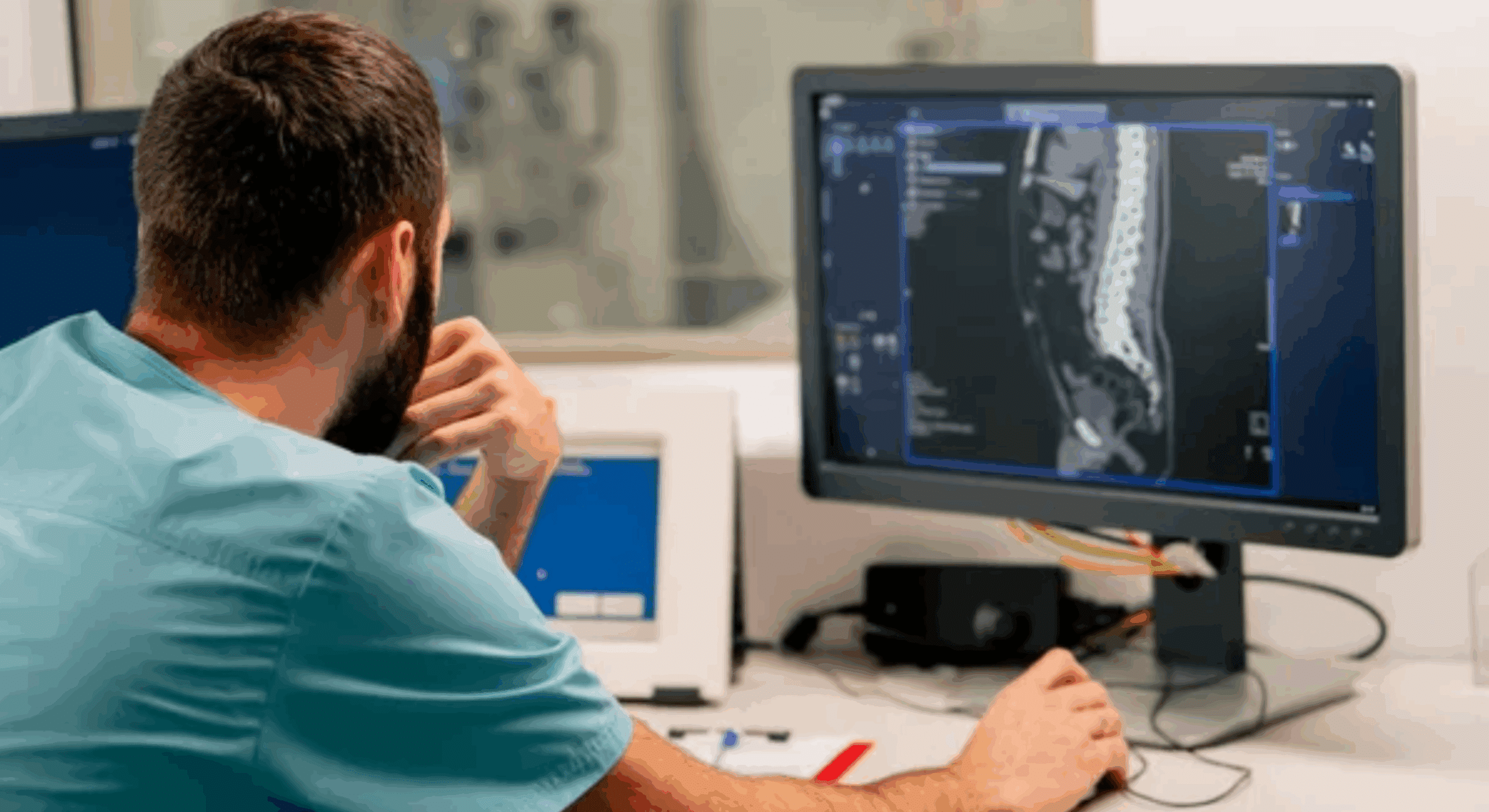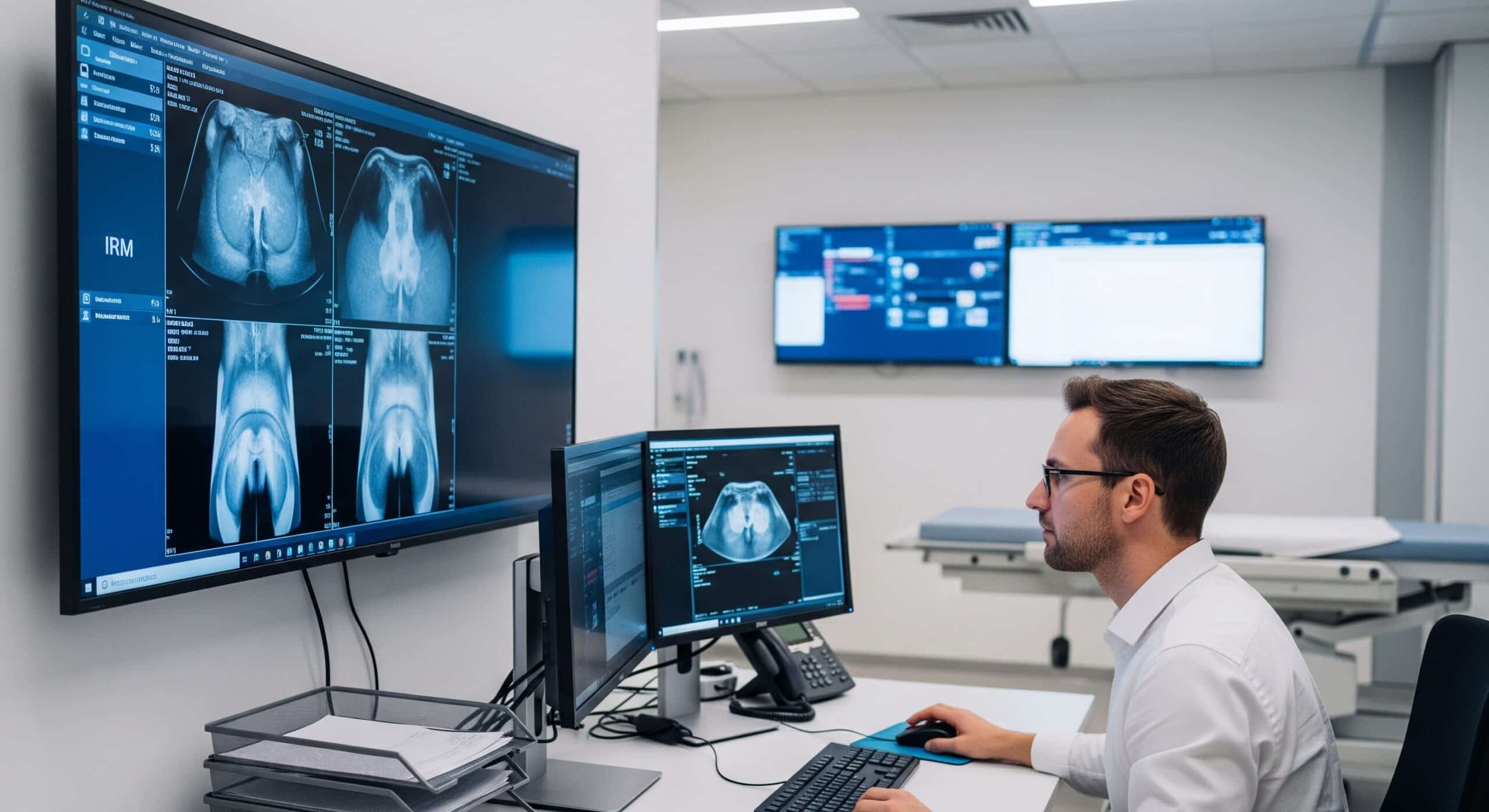Pregnancy is a unique experience, often filled with strong emotions and new discoveries. Among the tests that may be offered along this journey, obstetrical ultrasound holds a special place. Performed using medical imaging technology, it provides images of the developing fetus. At Radiméd, our team is committed to providing respectful, attentive professional care, with state-of-the-art equipment and recognized expertise. To learn more about obstetrical ultrasound, please visit our information page or the FAQ section.
What is obstetrical ultrasound?
Obstetrical ultrasound is a non-invasive examination that uses sound waves (ultrasound) to create images of the fetus in the uterus. Depending on your healthcare provider’s recommendations, this exam may be suggested at various stages of pregnancy in order to, among other things:
- Assess the size and position of the fetus
- Observe cardiac activity
- Gather information about the baby’s general condition
- Estimate the amount of amniotic fluid
- Screen for certain structural anomalies
Using equipment such as the LOGIQ™ E10 can help ensure high-quality imaging while prioritizing the mother’s comfort. To book an appointment, visit radimed.ca/rendez-vous.
When can an ultrasound be performed?
Depending on your medical care plan, several ultrasounds may be suggested throughout pregnancy:
- First ultrasound (between 11 and 14 weeks): This can help estimate the due date, assess some key aspects of fetal growth, and identify early markers.
- Second ultrasound (20 to 22 weeks): Known as the anatomy scan, this ultrasound allows evaluation of the developing organs and monitors overall growth.
- Third ultrasound (28 to 32 weeks): This scan may be used to monitor fetal growth, check the baby’s position, and evaluate certain placental features.
Additional ultrasounds may be recommended based on your physician’s assessments or individual circumstances.
Helpful tips for preparing for your ultrasound
A few simple tips can help your exam go smoothly:
- Hydration: It’s often recommended to drink about one litre of water in the hour before your appointment, especially for ultrasounds in the first trimester, unless otherwise directed.
- Clothing: Two-piece outfits are generally more practical so your abdomen is easily accessible for the exam.
- Having a support person: Someone close to you is welcome to accompany you and share this special moment.
What happens after an obstetrical ultrasound?
After the exam, your images will be reviewed by a specialist in gynecology and obstetrics. A report is then sent to the healthcare professional managing your pregnancy follow-up. They will explain your results, answer your questions, and, if needed, recommend further exams.
By your side throughout your pregnancy
At Radiméd, we pay special attention to everyone who comes to us for obstetrical ultrasound. We know each pregnancy is unique, so we personalize our approach to meet your specific needs and medical indications. For any questions or decisions regarding your care, we recommend consulting your healthcare provider. For questions about the exam, visit our Radiméd FAQ.







